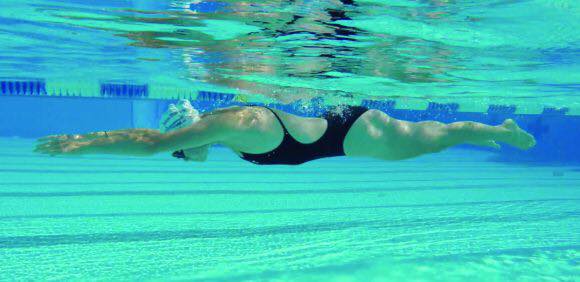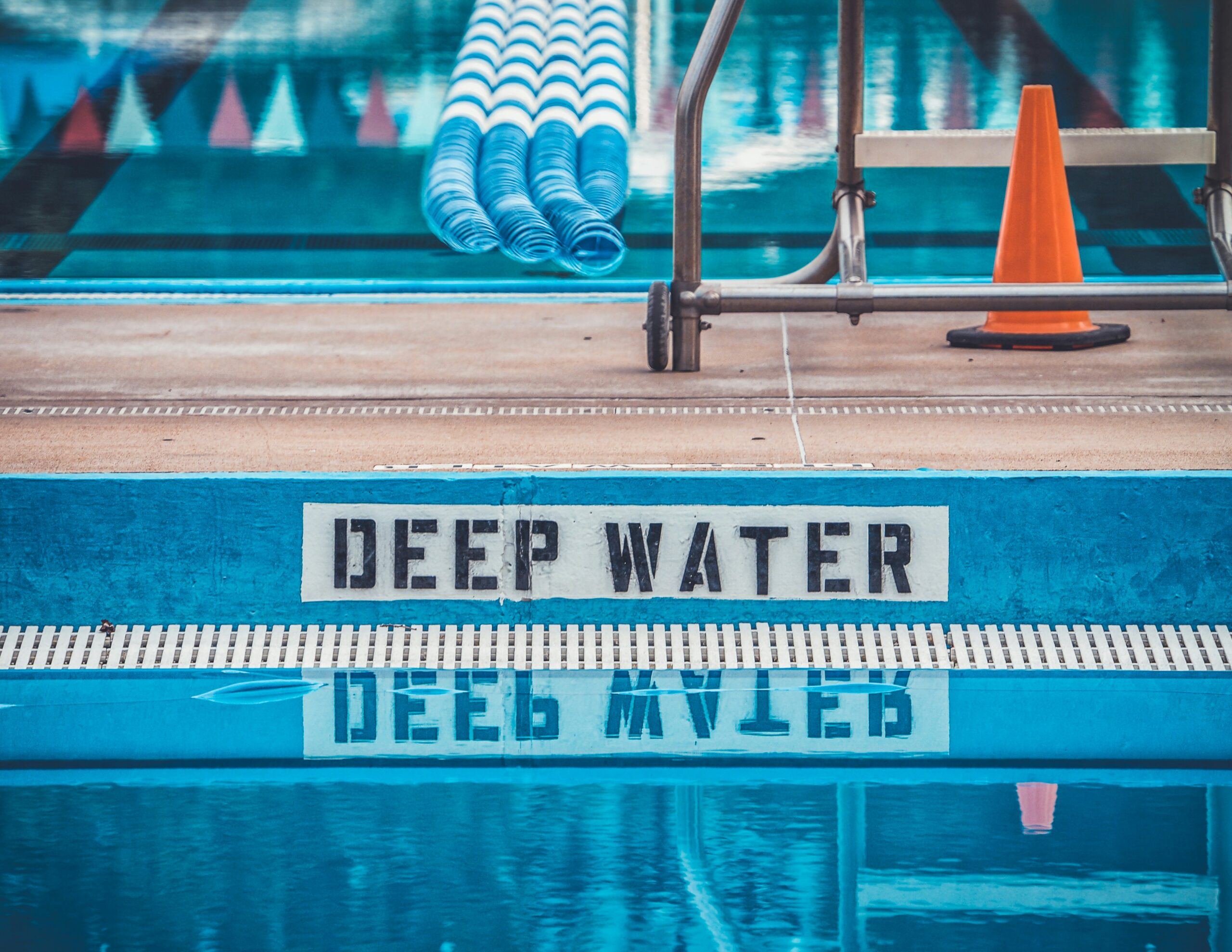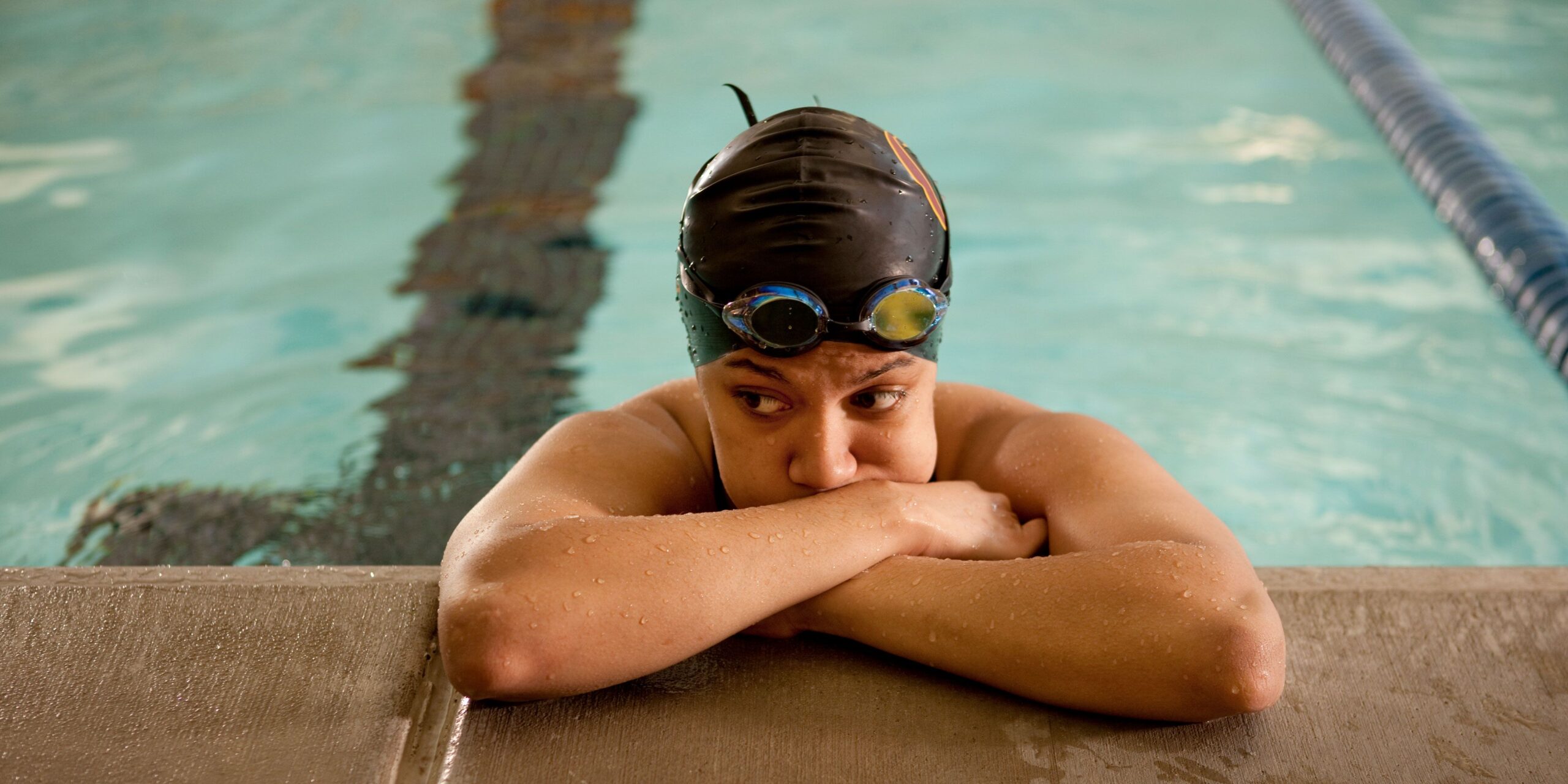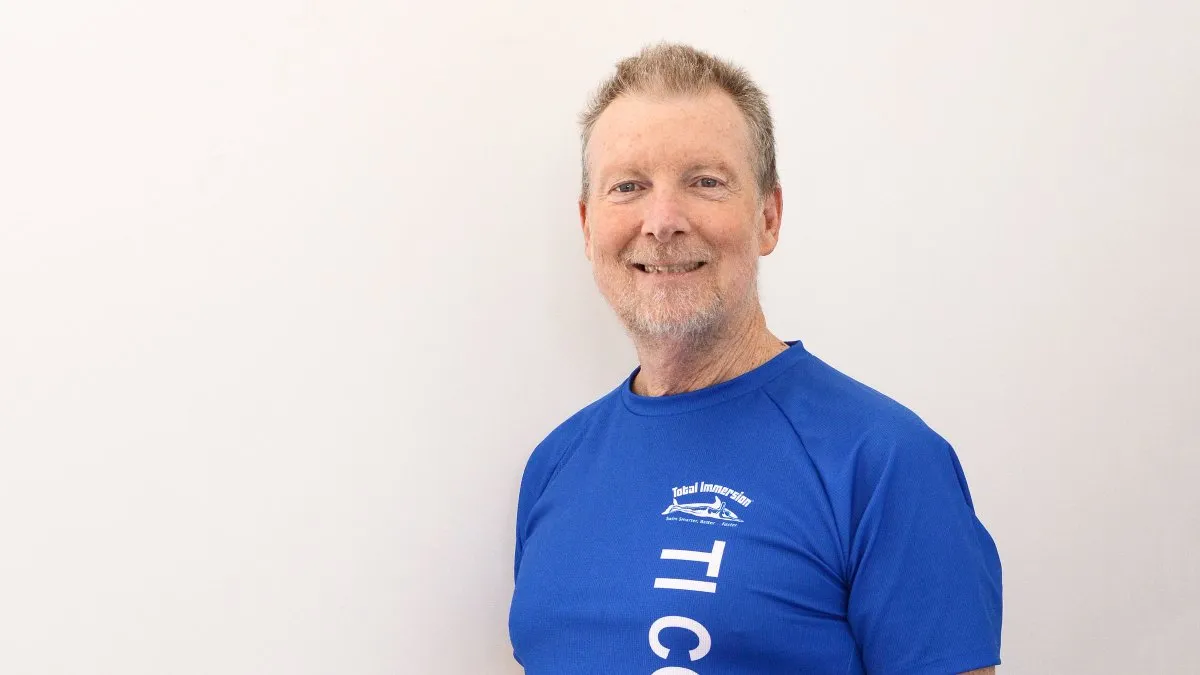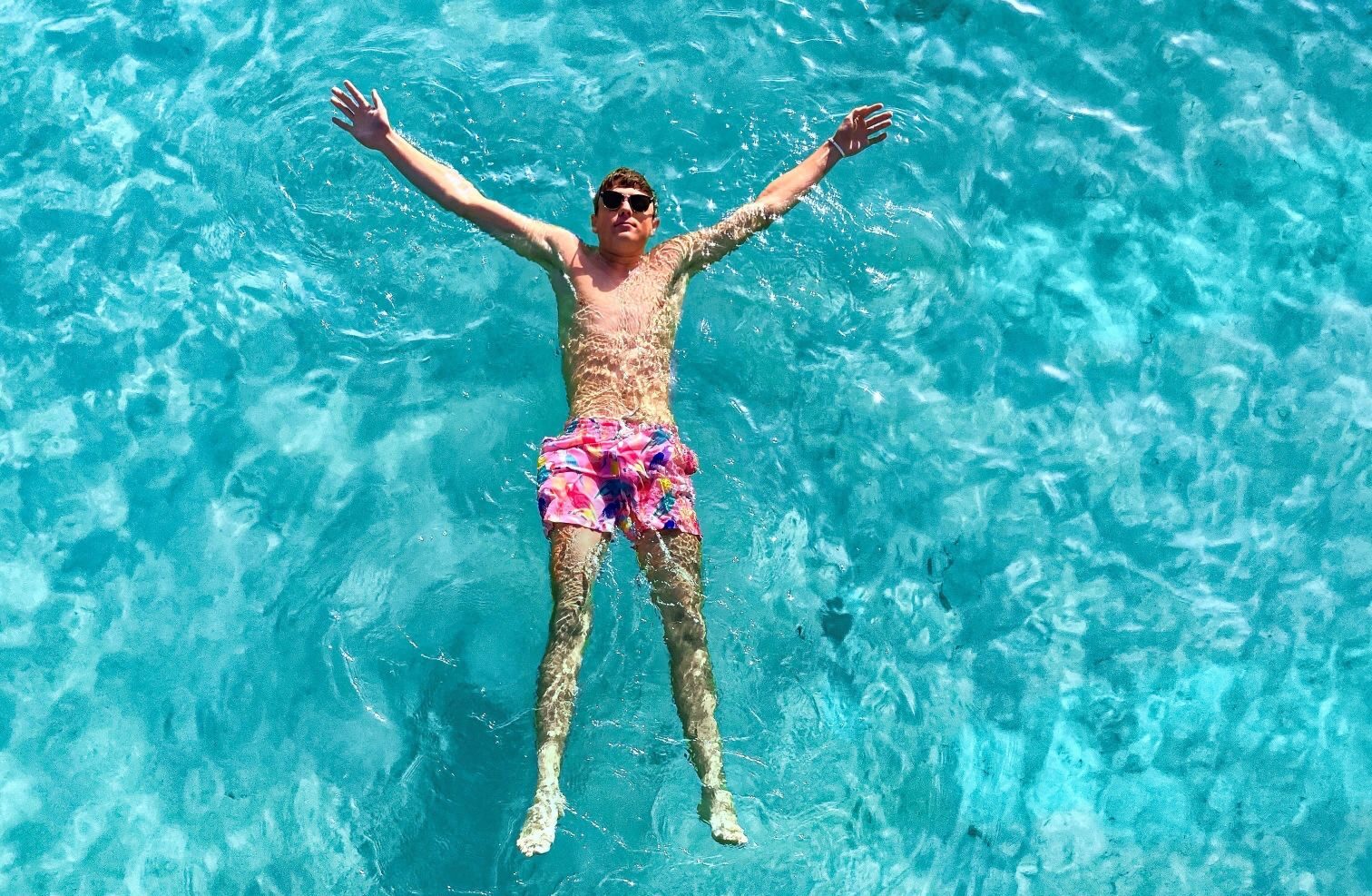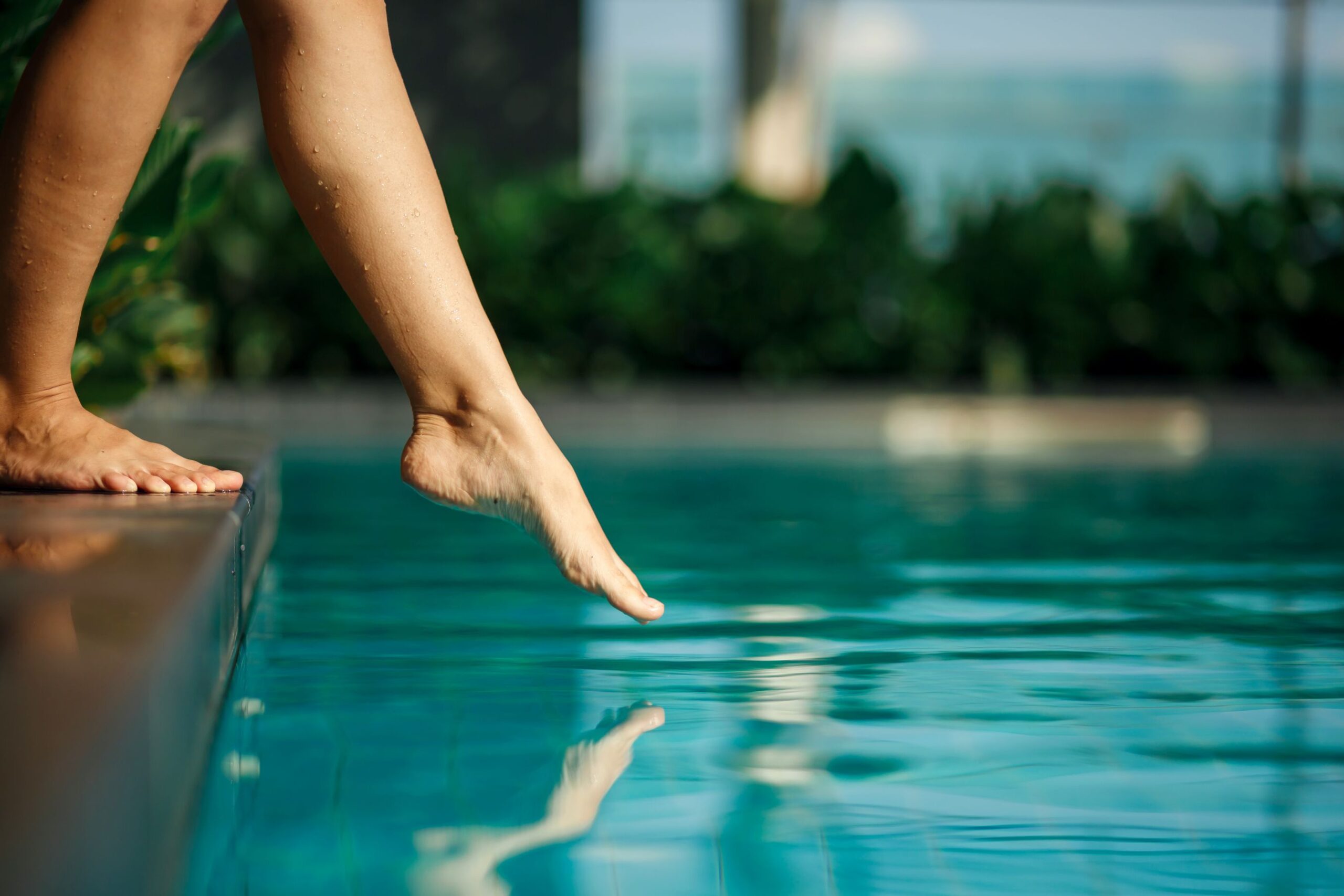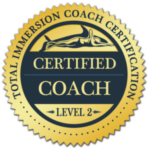I recently asked my Facebook followers what the most important thing they felt they needed to master if they wanted to swim better or learn to swim – it came as no surprise that most people said it was their breathing.
That’s exactly what I would have expected; of course, breathing is absolutely essential, we wouldn’t get far without it, but there is a skill that comes before breathing, before everything really, and without it, changing your swimming will always be a challenge.
That skill?
It’s simply noticing.
Most people don’t notice what they’re doing when they swim – they focus on their goal, usually to swim to the end of the pool, swim a certain distance or a certain time. But what they often don’t consider is what they’re actually doing as they swim, in reality, they may not even know what they are doing as they swim!
The truth is that unfortunately just swimming up and down or focusing on getting to the end of the pool won’t improve your swimming.
It’s simple – if you are not aware of what you are doing, you can’t change it.
So, wherever you are on your swimming journey – begin with noticing.
Your aim is to cultivate a practice of noticing what you’re doing as you swim so that you know what is happening – you know how tense or relaxed you feel, what your arms are doing, you know where your head is, you notice which muscles you are using, how fast you are kicking and how much air you get (or don’t get!) as you breathe. You’ll also notice what feels great, smooth, relaxed and natural.
Once you know what you are doing you can do more of it or take action to change the things that feel difficult, hard work, unnatural, stressful or sometimes, even painful.
Our lessons always start with learning to notice, that’s why our swimmers develop such great awareness about how they are swimming so they know when things are right and when they need work and they also know what to do to put things right.
We use a focus on breath management as the first example of how essential and useful a skill noticing is – you can try it for yourself.
Notice your breath
Often swimmers, whether they are beginners or have more experience, have no or little awareness of what they are doing with their breath as they swim.
It is common for people to hold their breath while swimming whilst others blow all their air out. Neither option is ideal as both will trigger your human survival instinct that wants to keep you alive by making sure you keep breathing (not unreasonable!) so it will be impossible to relax – and relaxing is essential for efficient stress-free swimming.
Whatever you are currently doing, your aim is to exhale a slow steady stream of bubbles from your nose, slow enough that you have a little bit of air left as you turn or lift your head to take a breath. Breathing like this will keep your brain happy as you will never run out of air.
But if you don’t notice your breath, how will you know what to change?
So, start by learning to notice your breath – whatever your current swimming ability or stroke, notice what happens with your breath when you swim or are in the water. Are you holding your breath? Are you pushing all the air out? Are you exhaling gently? How does it feel?
Have a go at exhaling gently through your nose either as you swim or as you bob down in the water, if this is new to you it may take a little time to become comfortable, but it is 100% worth it.
Notice the difference breathing like this makes on how you swim and feel. Almost without fail, swimmers who do this feel more relaxed and so swim smoother and more efficiently straightaway.
Learning to notice will help transform your swimming – it will help you learn the essential skill of focus; help you develop that elusive ‘feel for the water’; it will tell you what’s working well and what areas you need to work on and will provide a real sense of satisfaction as you take control of your swimming progress.

